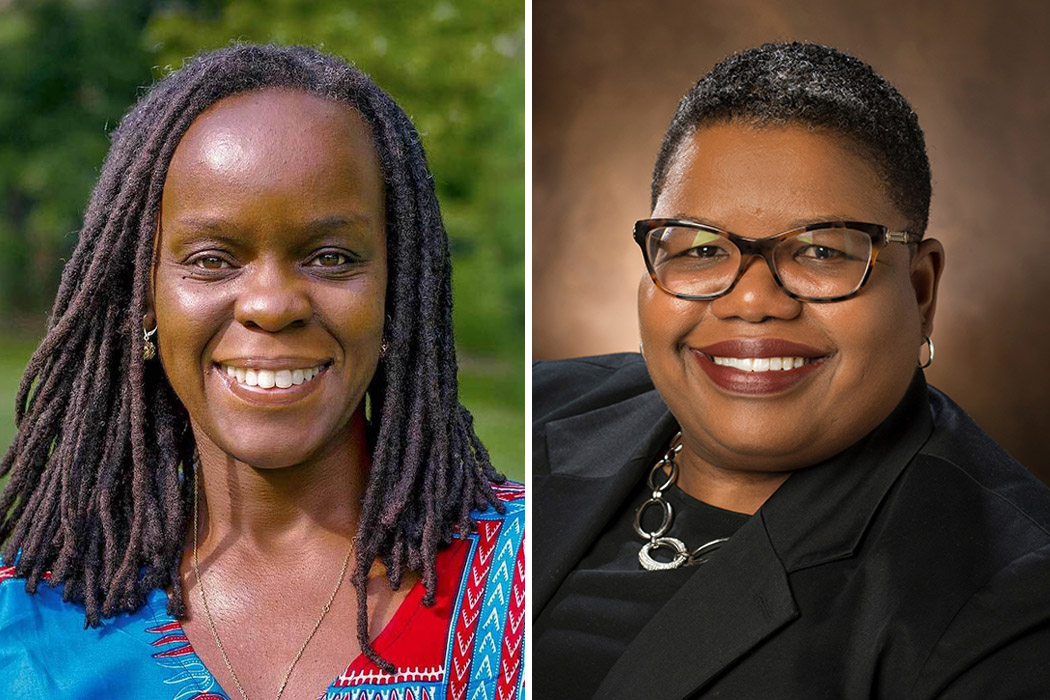By Maryland Today Staff
The University of Maryland has named Stephanie Shonekan dean of the College of Arts and Humanities (ARHU), effective July 1.
As dean, Shonekan will provide strong and visionary leadership for ARHU, supporting an environment of diversity and inclusive excellence in teaching and learning; promoting a culture of impactful research, scholarship and creative activities; and encouraging interdisciplinary collaboration and partnerships.
“I am excited by this opportunity to lead the effort to drive and support an environment of interdisciplinary curricular, pedagogical innovation and research for the faculty and students of the College of Arts and Humanities at the University of Maryland,” said Shonekan. “As a professor of music and Black studies, I am a constant champion for the humanities and the fine arts, and am energized to lead collaborative work to help all of us understand the critical importance of these areas, and their potential to enrich all disciplines.”
Shonekan joins UMD from the University of Missouri, where she serves as senior associate dean of the College of Arts and Science. In this role, her work focuses on guiding the college to meet the mission of a public institution, providing a well-rounded education to its students, promoting research productivity, and serving the college, campus and all the various fields of the College of Arts and Science. She leads and manages the college’s budget and administration, faculty affairs, hiring and facilities.
“Dr. Shonekan brings a wealth of experience advocating for the representation of arts and humanities, driving innovation in teaching and learning, and advancing work to create an inclusive culture,” says Senior Vice President and Provost Jennifer King Rice. “Her scholarship and leadership align with the vision outlined in our strategic plan, and I am thrilled by the knowledge and perspective she brings to the University of Maryland.”
As senior associate dean at the University of Missouri, she has led initiatives to develop guidelines regarding faculty workloads; review and revise the staff support structure throughout the college; and find ways to uplift and highlight the value of the college’s departments and colleagues in the humanities, arts and social sciences.
Prior to her current position, she served as associate dean for graduate studies and inclusive culture, where she created a faculty mentorship initiative focused on meeting the intricate needs of graduate students and led cross-departmental work to make the college and campus a more inclusive space.
Shonekan previously served for five years as a department chair, first at the University of Missouri and then at the University of Massachusetts, Amherst, and held several roles at Columbia College Chicago for eight years.
Shonekan’s work focuses on race, culture, identity and history. A prolific ethnomusicologist, she is the author of “Black Resistance in the Americas: Slavery and Its Aftermath, Black Lives Matter and Music,” and “Soul, Country and the USA: Race and Identity in American Music Culture.” She is also co-founder of the national “Race and the American Story” project, dedicated to “cultivating conversation, fostering understanding, broadening knowledge, and building community among people of different backgrounds and walks of life in the U.S.”
Shonekan is the recipient of various awards, including the Commitment to Diversity Faculty award at the University of Massachusetts, and the Marian O'Fallon Oldham Distinguished Educator Award, the Excellence in Education Award and the Black Girls Rock Award, and was a Teaching Excellence finalist at the University of Missouri.
She holds a B.A. in English from the University of Jos, Nigeria, an M.A. in English from the University of Ibadan, Nigeria, and a Ph.D. in folklore and ethnomusicology from Indiana University.
Photo by Jackie Byas.







